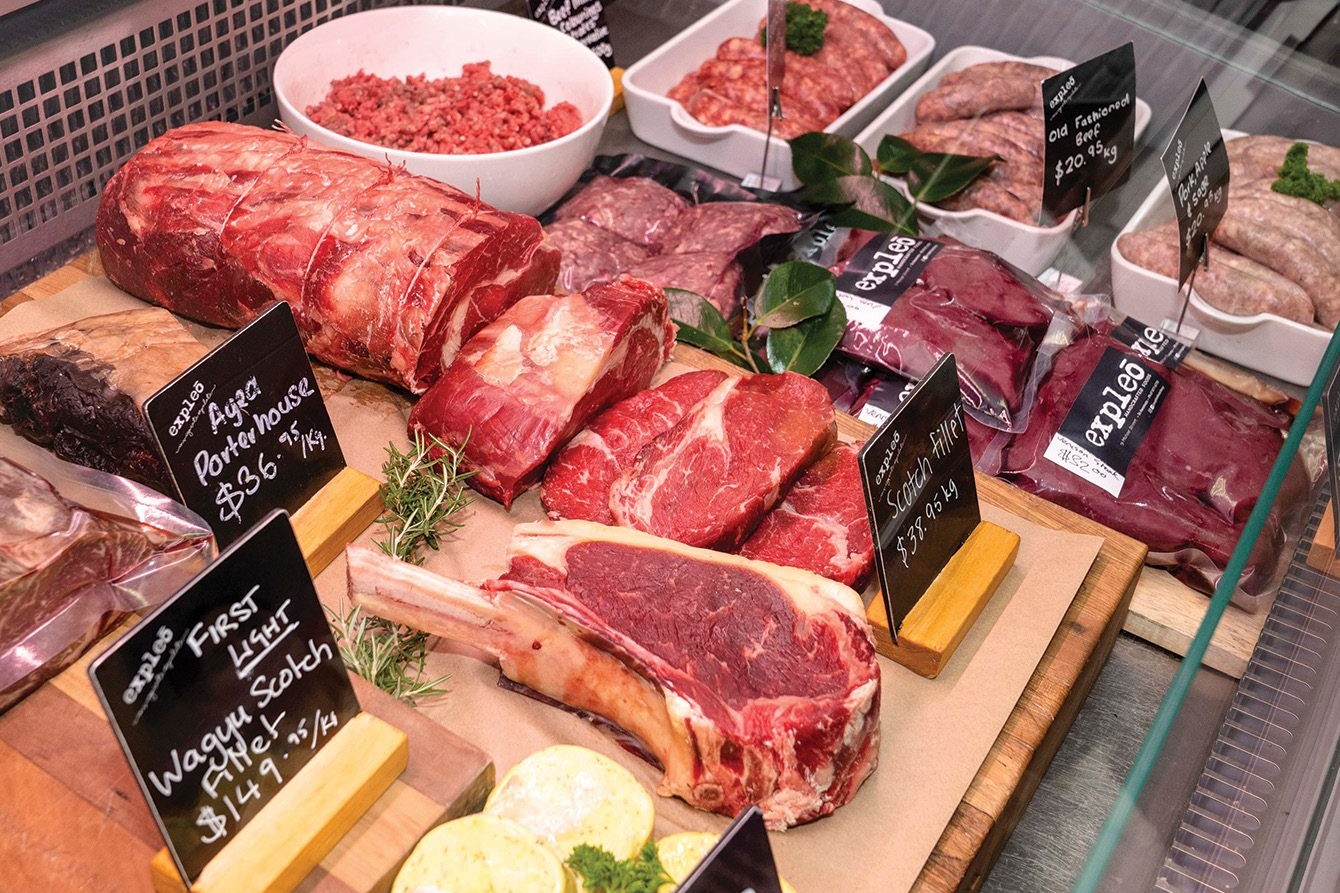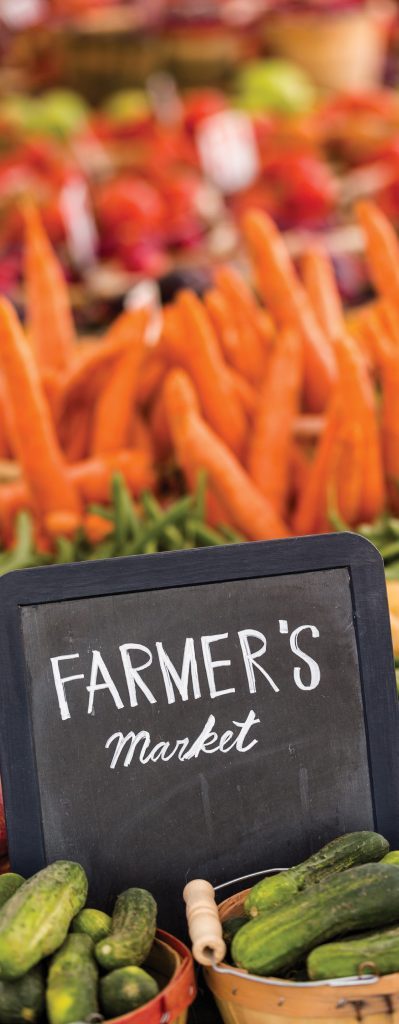Looking after the local market
What if food and farming was more like healthcare and education - a public good? By Elaine Fisher.

Farming can be more than an industry. It can also be a genuine pillar of society, akin to health or education, says Daniel Eb, Nuffield Scholar and owner of Dirt Road Comms.
In his scholarship paper “The Home Paddock – A strategy for values-led redesign of the domestic food system”; Daniel argues change is needed to address the challenges farming faces including a fracturing social licence to farm, staff recruitment and lack of an authentic provenance story.
“There is a tacit acceptance that the way forward is to shift from designing for volume and market value, to systems that also include social and environmental values.”
Daniel’s report imagines what a values-led food and farming system in Aotearoa New Zealand might look like.
“What if food and farming was more like healthcare and education – a public good? The analogy helps us to compare systems designed to sell to consumers, with those designed to more fully meet the needs of people. It helps us to see the challenges in values-led systems like complexity, stakeholder collaboration and empathetic design and their benefits like trust, engagement and local prosperity.”
However, Daniel told the Dairy Exporter, he doesn’t propose every farmer and grower in NZ should move their farming systems away from an export focus. “Absolutely we need our export base but let’s look at redesigning how we distributed the 10% of food consumed by our domestic market.
“We’re a trading nation, and we’re good at it. But we need to front-up to the fact that under the current export-dominated model, Kiwis feel increasingly disconnected from food and farming. To meet these entrenched social challenges, we need to have the courage to do things differently – to lean into our values and redesign our home paddock, for local food and farming economies to thrive.”
Farmers and growers who operate close to town and city boundaries should easily be able to supply their products directly to local consumers, including institutions like hospitals, rest homes and schools, without being part of the export market infrastructure.
The closure of many regional meat works means farmers have no choice but to send their animals to large export-focused plants where any local provenance associated with their meat gets lost.
“There are so many regulations and hurdles to jump through that an individual farmer can’t process their own meat for local consumption. A solution might be mobile processing units.”
Several dairy farmers already supply fresh milk through home deliveries to customers from small onfarm processing facilities or vending machines, all of which have to meet high food safety standards.
In March 2020 Daniel launched the first Open Farms day which saw 3500 Kiwis visit 45 farms of all types and sizes. He hopes even more will attend this year’s event on Sunday, March 12, which is supported by Beef + Lamb NZ, The Our Land and Water National Science Challenge and MPI.

It’s events like these which help reconnect Kiwis with the land, their food and with farmers, aspects Daniel believes are vital to re-establishing farmers’ social licence to farm.
However, Daniel suggests open days, especially for those farmers focused on the domestic market, should be more frequent than annually.
“When 84% of Kiwis live urban lives and 60% of them don’t visit any rural friends or family, it’s up to farming to redesign parts of itself to fit around them, and not the other way around.
“That means building meaningful, everyday touchpoints with urban New Zealanders. In our values-led design process, we’ll need to focus on aspects of food and farming that our existing model largely ignores – like cultivating a ‘food nation culture’, connecting people to nature, seeing farms as community spaces for learning and healing or taking responsibility to fix the moral and market failure that is food insecurity.”
As altruistic as that sounds, Daniel argues such an approach can also bring benefits to the farming business.
“Nothing happens for free but there is more than one way to make money. A direct relationship with customers cuts out the middleman, potentially making the business more profitable. It can also increase resilience. By being closer to them, you can ask more of customers than you could otherwise.”
Daniel quotes the example of an organic market garden business in Christchurch which faced losing most of its crop to flooding.
“They had to pivot quickly so asked their customers if they would buy “rainy day” boxes of produce to save it from being wasted and to provide cash flow during a hard time. Their customers responded enthusiastically.”
Hosting the public at open days onfarm can ease labour problems too.
“I know of farmers who have recruited people, often initially as part time workers, from open days. They have loved the farm experience so much they wanted to work there.
“There are other intangible benefits including a boost to team morale from proudly sharing with your community what you do every day. That doesn’t appear on the balance sheet, but it has a value for the business.”
Other ways of reconnecting Kiwis with farming include Farmer Time, an educational programme that connects farmers virtually with NZ primary and intermediate school students with the aim to inspire, engage and educate young people about the journey of food from farm to fork in the diverse agricultural industry.
Beef + Lamb New Zealand Inc is the NZ partner of the Farmer Time programme founded in the United Kingdom by farmer Tom Martin and coordinated by LEAF (Linking Environment And Farming).
Daniel believes that for meaningful and effective change in farming and growing to happen, a new mission-orientated organisation built for society-wide collaboration and pro-social impact is required.
“Change won’t come easy to the sector. It means talking about non-market solutions to non-market problems, in a sector that was forged through a painful crash-programme of free-market economics.
“I fully expect words like ‘utopian’ and ‘socialist’ to get thrown around. That’s fine – I have my rebuttal ready.
“But I want to make it clear that this report comes from a place of love for farming. A long spell on the family farm helped me through a difficult time in my life, orientating me towards a path of purpose.
“There is no dollar value I can apply to that experience. When I look around our society, I see many Kiwis who need to feel farming as a force for good too. I hope this report, and the values-led redesign of our domestic food system it supports, gives them that chance.”
- To read Daniel’s report – go to: ruralleaders.co.nz/the-home-paddock





